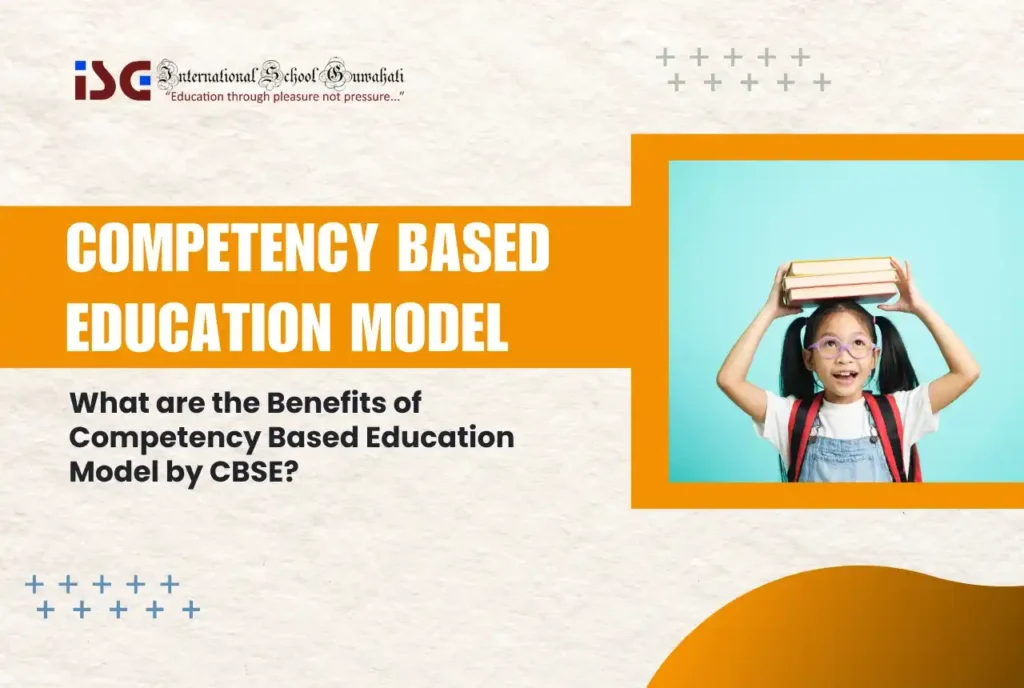![]()
Are students just memorizing facts, or are they actually developing skills that can make them successful in real life? CBSE schools are leading the charge for one of the biggest Indian education revolutions through the benefits of competency based education (CBE), which shifts from rote learning to practical, skill-based development.
This change is propelled by the National Education Policy 2020, which focuses on knowledge that can be used in real life and, therefore, builds a foundation of essential skills and adaptability.
The benefits of competency based education transcend the academic realm; it helps build critical thinking, problem-solving, and collaboration—much needed in today’s world. Unlike conventional methods, which have largely focused on exams and rote memorization, CBE provides students with a toolkit for navigating the complexities of modern life and the workplace.
CBSE schools are therefore enhancing learning outcomes while preparing a generation ready to succeed, innovate, and thrive in an ever-evolving world. This marks an extremely vital step toward empowered, future-ready individuals by the shift toward skill-centric learning.
Understanding the Competency Based Education Model by CBSE
The competency based education bases itself on a few central ideas that center on competency and results-based learning. Simply put, The benefits of Competency Based Education help ensure that students gain some competencies, which include what they know, skills, and attitudes needed to function adequately in given contexts.

In this, learners move through the curriculum by mastering specific skills rather than the clock hours spent in class, and this ensures learning is personalized and fits individual needs.
- Real life: CBE encourages the application of knowledge to real-life settings, hence there will be a better understanding of the concepts when bringing out projects with problem-solving activities.
- Holistic Development: The CBE model supports the vision of NEP 2020 in building well-rounded individuals with knowledge, critical thinking, collaboration, and communication skills.
NEP 2020 motivates this model by pointing to the requirement for education reform toward learning experiences. This emphasizes assessments that have changed from rote memorization to competency based assessment.
Students should be equipped with a chance to demonstrate how their knowledge is effectively used in everyday situations. Thus, this method equips the learner not just to pass examinations but for a lifetime of learning and change.
Key Benefits of Competency Based Education by CBSE
The CBE model offers several benefits that enhance the student’s outcomes and prepare them for the future. Here are eight key benefits:
1: Personalized Learning Experience

Among many other benefits of competency based education one of the important advantages is that it allows students to learn at their own pace and according to individual strengths, improving engagement and retention.
2: Emphasis on Skill Application
This model moves the focus of learning from mere memorization to hands-on skill creation. In this approach, it is through actual projects and solutions to issues that make use of information in everyday life activities.
3: Better Assessment and Feedback

A critical feature of CBE is the formative assessment over and above testing. The students are given continual assessments where they improve continuously and not through test-takes, which aim to seek answers only by using memorized ones.
4: Reduced Exam Stress
With project-based assessment among others, the benefits of competency-based education is that it also reduces the tension created in traditional exams. This way, it allows students to demonstrate their learning outside of the stressful examination hall atmosphere.
5: Encouragement of Lifelong Learning

The benefits of competency based education foster a growth mindset and flexibility. This avails the thirst for a lifelong learning approach. It prepares students to respond to the employment world and life changes. This is because they have become self-learned professionals.
6: Enhanced Teacher-Student Interaction
The first benefit of competency based education is that teachers focus more on student-centered learning, build relationships, and offer individualized support. This interaction enhances the overall learning experience.
7: Improved Critical Thinking Skills

CBE uses critical higher-order skills such as analysis and problem-solving as integral components of the learning process. The benefits of competency based education are that it allows students to think critically about information and apply it appropriately.
8: Prepares for Global Standards
This model offered by the CBE meets international standards of education, giving Indian students a competitive edge over any other country in the world.
Implementing Competency Based Education in CBSE Schools
The Central Board of Secondary Education has taken several landmark decisions that will help its affiliated schools implement Competency Based Education in the light of National Education Policy (NEP) 2020.
Professional Training Programmes: CBE, through teacher training programs, will train teachers in specific competencies that can make the CBE methodology operational. Such training is offered in workshops and sessions to learn competency based teaching strategies.
Curriculum Reformulation The curriculum is reshaped based on CBSE principles, thus requiring an acquisition and mastery skill, not time-based progression. This involves a pathway empowering students to learn at their own pace, with well-defined measurable learning objectives clearly stated.
Online Resources: CBSE has established a specific microsite of CBE in order to offer abundant facilities for educators such as guidelines, assessment tools, and other focused instructional material aligned with competency.
Besides that, CBSE has tie-ups with organizations like British Council to develop resources. These collaborations aim at ensuring that educators have tools and frameworks that support competency based learning so that the teachers have access to good quality instructional materials and professional development opportunities.
The Role of Schools Like International School Guwahati in Promoting CBSE

Institutions, such as International School Guwahati, play a very important role in this promotion. Schools are required to implement the CBE model and adapt it effectively to the education system. International School Guwahati is one such example of institutions embracing CBE in their schools.
International School Guwahati is aligned with competency based principles in teaching methods, encouraging holistic development through personalized learning experiences. The school provides a critical thinking, problem-solving, and collaborative learning environment that prepares students to meet the demands of contemporary education. They are an example for the other schools in Guwahati and Northeast India, showing how effective implementation of CBE can lead to meaningful educational outcomes.
The Future of Competency Based Education in CBSE and India
With more and more evolution in the future, the benefits of competency based education inside CBSE schools seem bright because it is continuously evolving. The sheer number of schools that would initiate CBE practices would leave a substantial impact on India’s future education policies. This shift also aligns with the greater vision of NEP 2020 to transform India’s educational landscape by conforming to international trends and relevance.
Competencies, and not traditional rote learning, are focused on as CBE readies the students for a dynamic world, equipping them with the skills that are going to be useful in a lifetime. It is the transformation that helps in creating a generation of learners who are adaptable, innovative, and ready to take up real-world challenges.
Conclusion
Summarily, the benefits of competency-based education and its model implementation will be necessary for the reconstruction of India’s educational structure because it will increase the involvement of students and, in turn, improve learning outcomes while introducing global standards in education.
Incentivizing stakeholders like teachers, parents, and policymakers to adopt competency-based approaches will ensure that students are better equipped to face all the challenges that await them in this complex world of the future.








